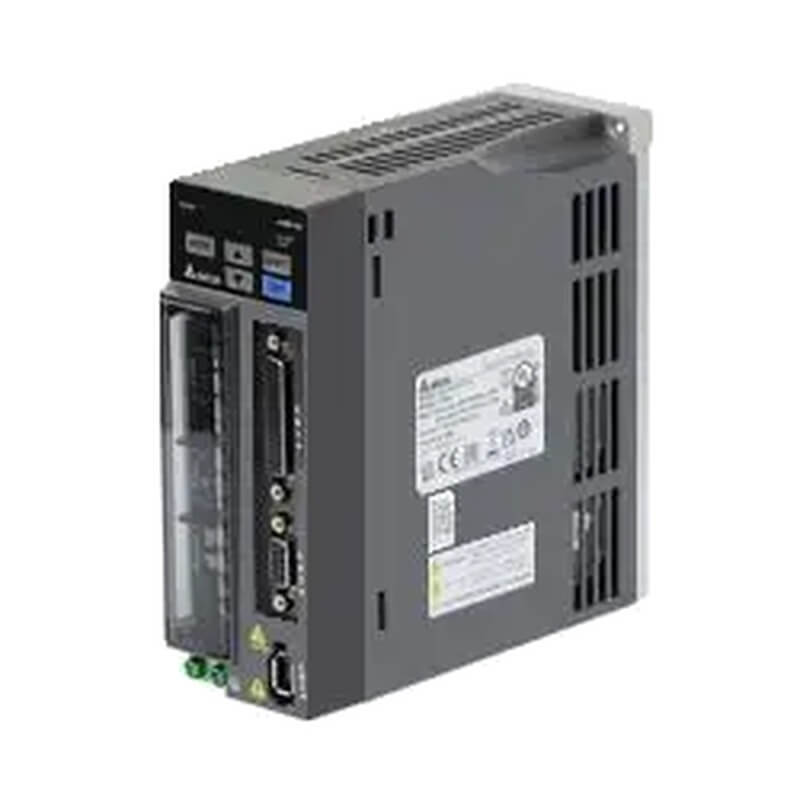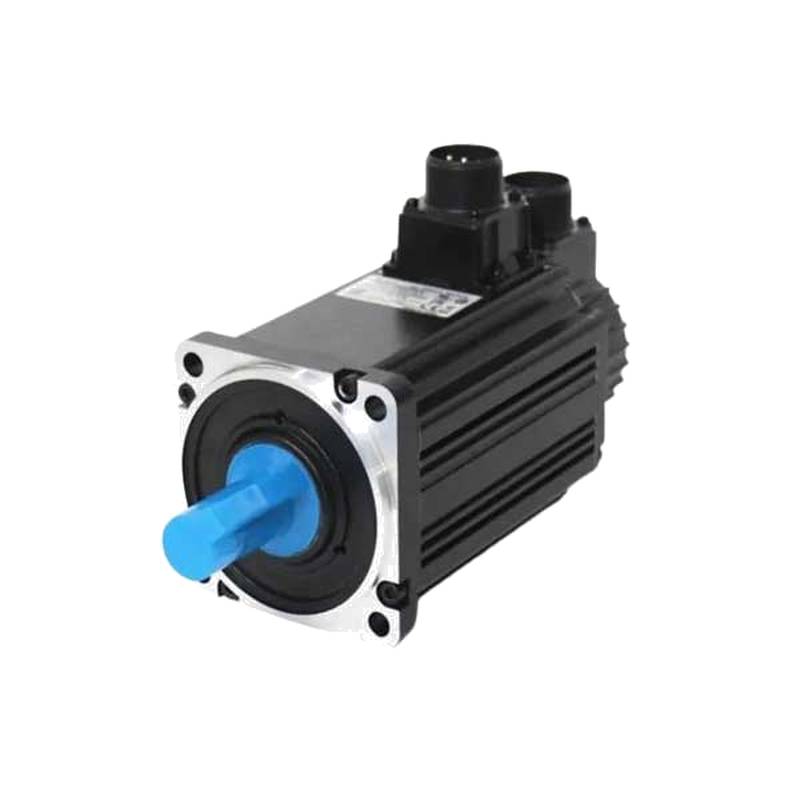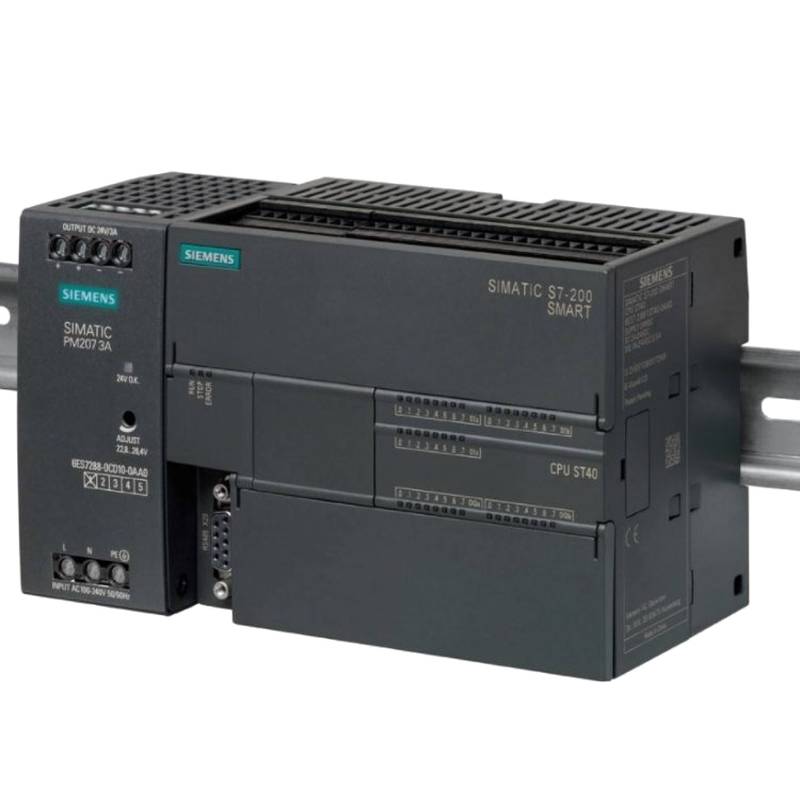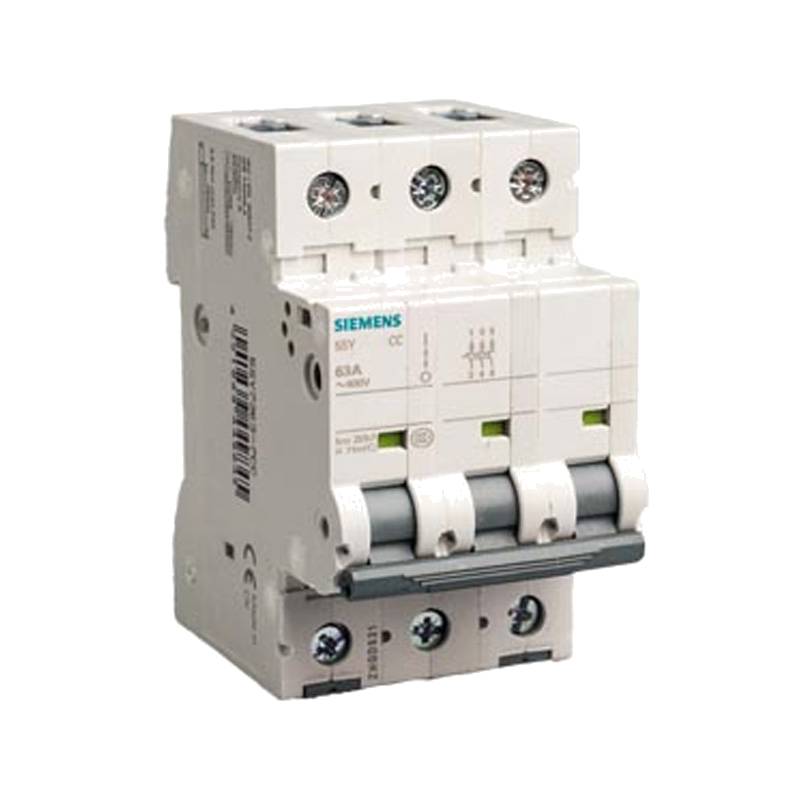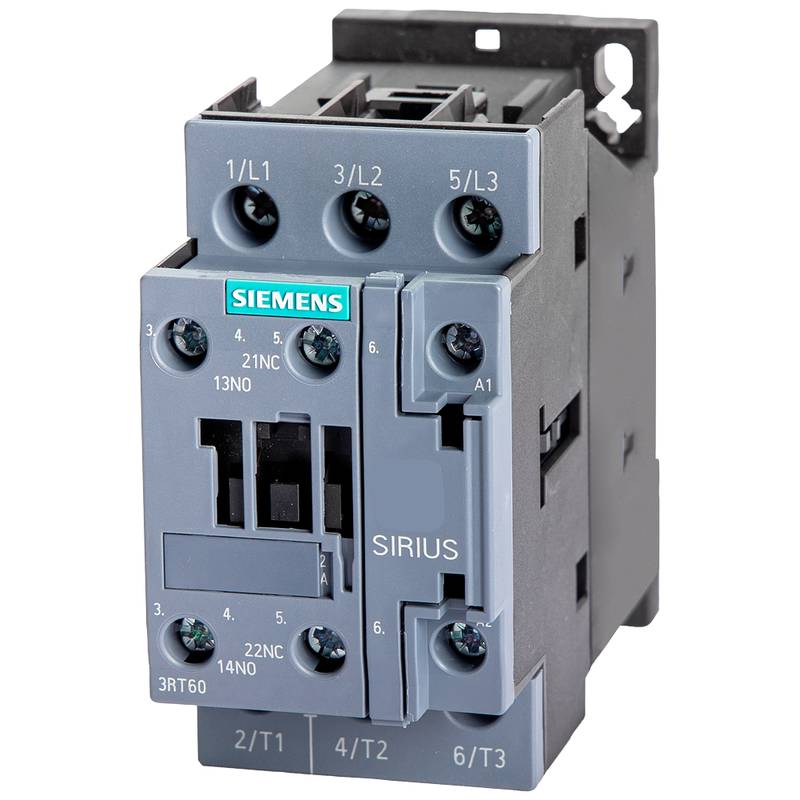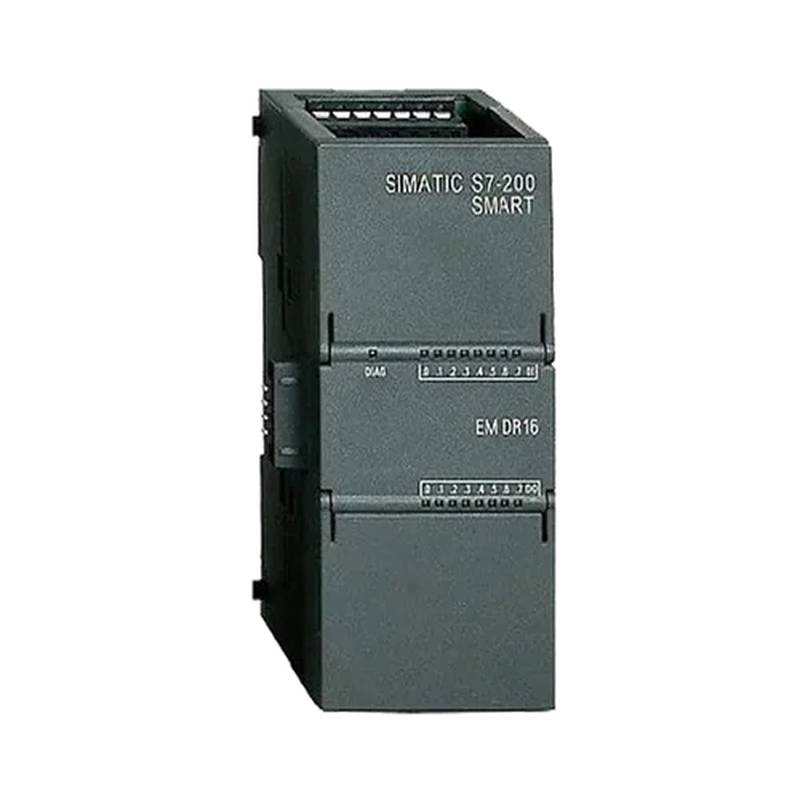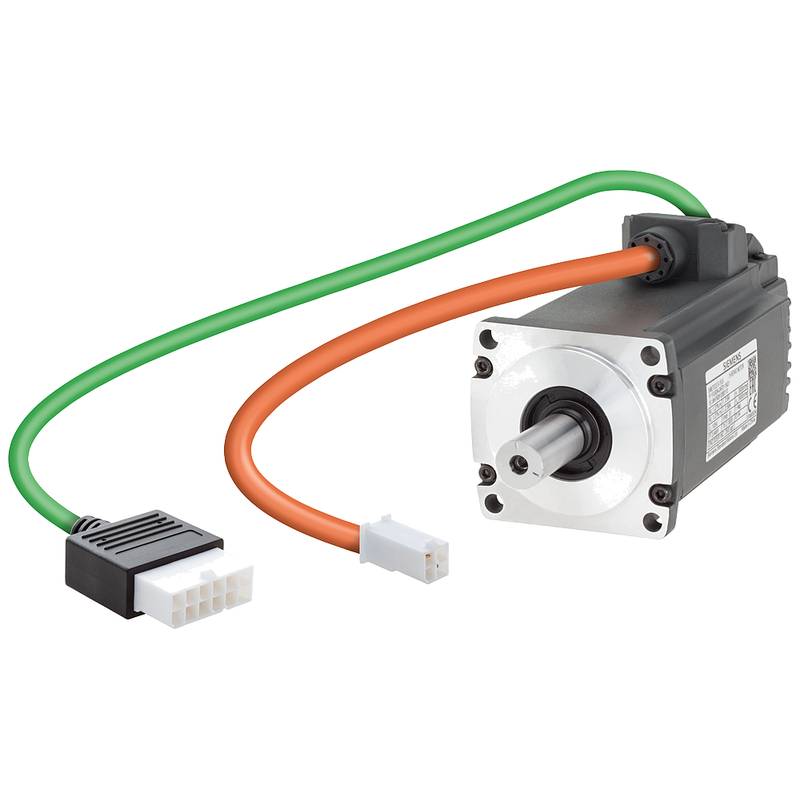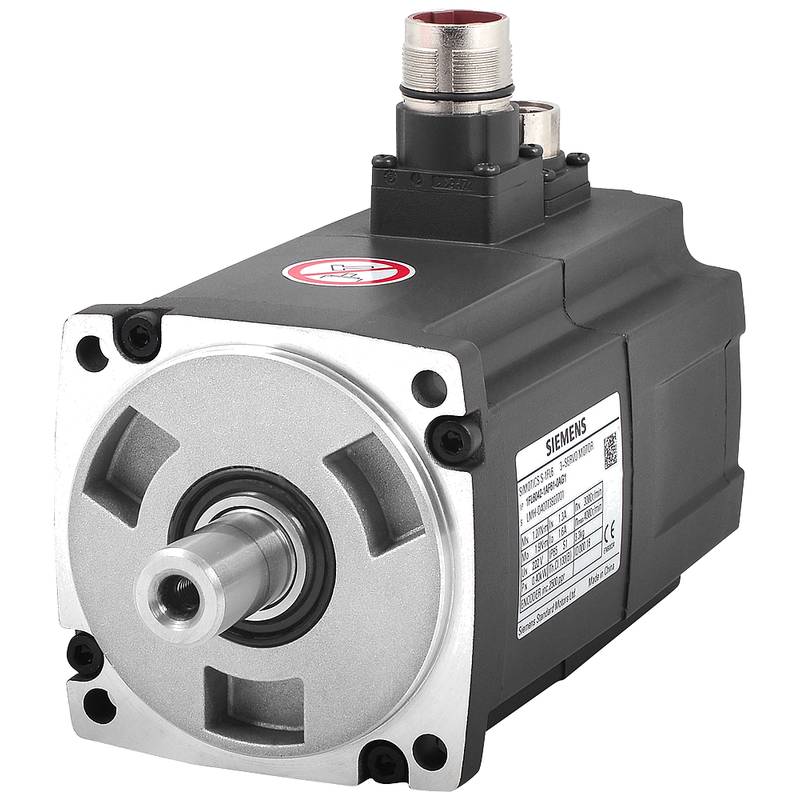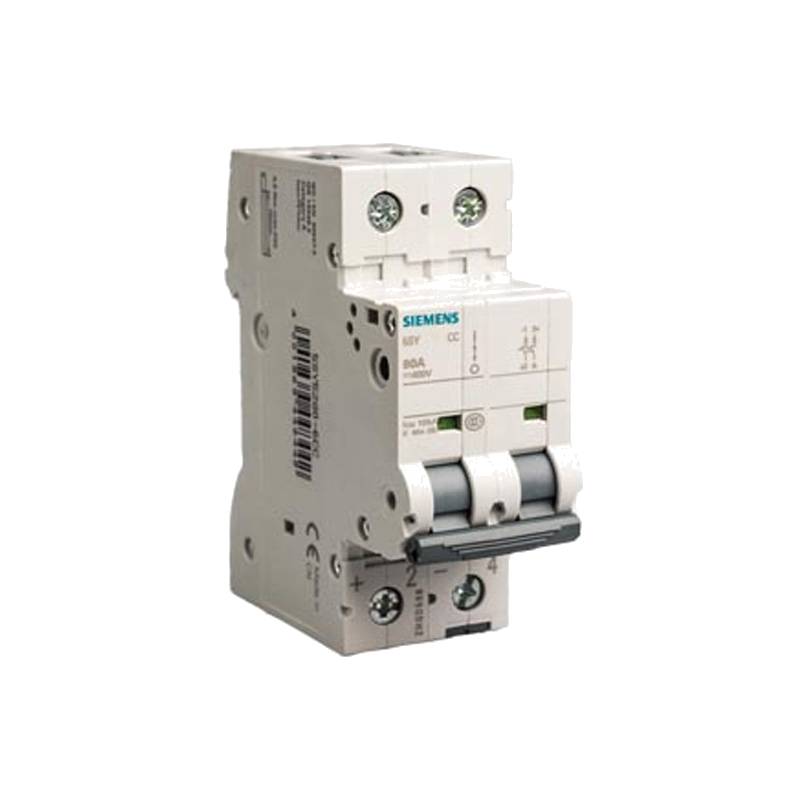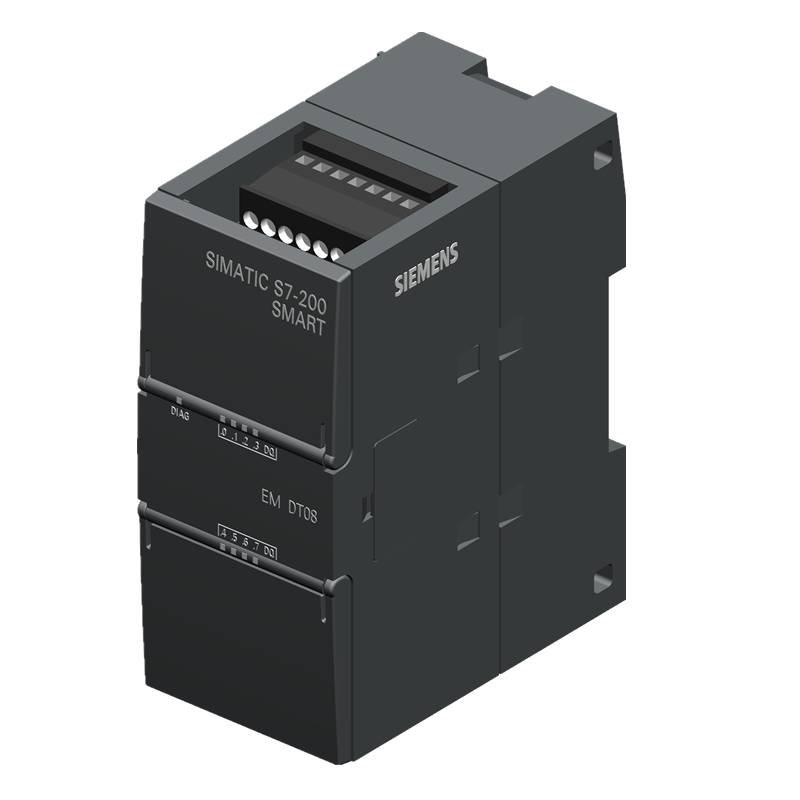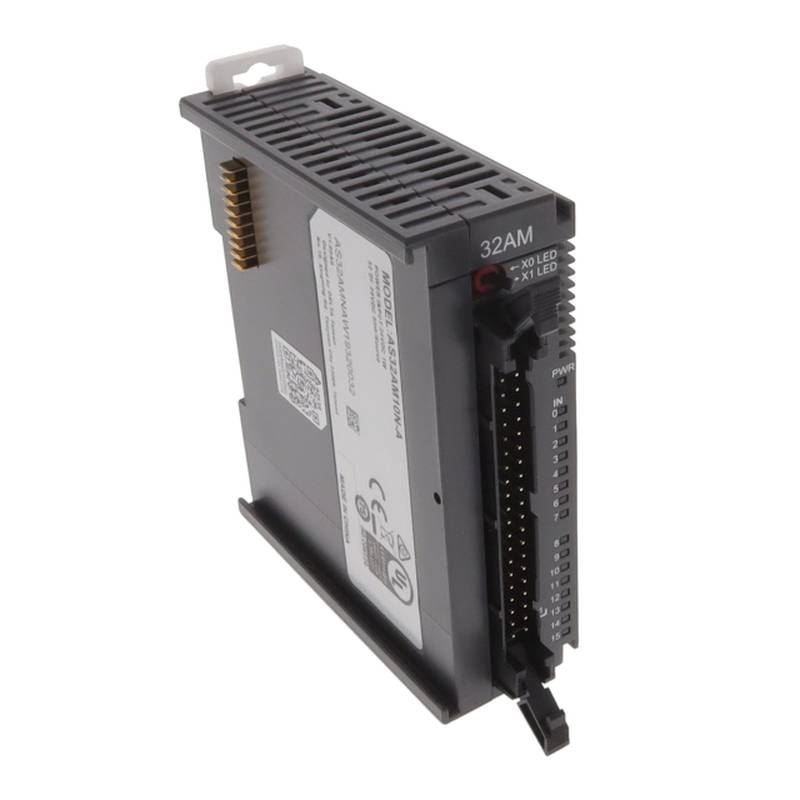
The DELTA ASD-B3-0721-E Universal Servo Drive represents a robust solution for demanding automation tasks, offering advanced control, high precision, and exceptional reliability. This drive excels in applications requiring dynamic response and accurate motion control, boasting key advantages such as a compact design, versatile I/O options, and integrated safety features. Its core technical parameters include a rated output current of 7.2A, a power rating of 3.0kW, and support for a wide voltage input range (AC 1Ph/2Ph 170V~265V, 50/60Hz), making it adaptable to diverse global power grids. The drive's built-in braking unit and robust thermal management system ensure stable operation even under heavy loads.
Product Specifications
| Feature | Specification |
| :----------------------- | :------------------------------------------------ |
| Modard | | ASD-B3-021-E
| Rated Output Current | 7.2A |
| Rated Output Power | 3.0kW |
| Input Voltage | AC 1Ph/2Ph 170V~265V, 50/60Hz |
| Output Voltage | AC 3Ph 0V~230V |
| Control Method | Position, Velocity, Torque, Flux Vector Control |
| Communication Interfaces | RS-485 (MODBUS), CANopen, EtherNet/IP, EtherCAT |
| Braking Unit | Built-in |
| Protection Level | IP20 |
| Operating Temperature | 0°C to 55°C |
| Dimensions (W x H x D) | 76mm x 180mm x 160mm |
Core Features & Market Positioning
The DELTA ASD-B3-0721-E distinguishes itself through its universal compatibility and advanced control algorithms, positioning it as a high-value component for sophisticated automation systems. Its ability to seamlessly integrate with various motor types, including synchronous and asynchronous motors, provides unparalleled flexibility. The drive's superior performance in high-speed positioning and precise torque control makes it a preferred choice for industries demanding accuracy and efficiency. Furthermore, its competitive pricing relative to its feature set makes it an attractive option for both high-end industrial applications and cost-conscious integrators seeking reliable performance. The integrated safety functions, such as Safe Torque Off (STO), enhance operational safety and reduce the need for external safety relays, simplifying system design and reducing costs.
Key Application Scenarios
This versatile servo drive finds optimal application in a broad spectrum of industrial automation tasks where precision, speed, and reliability are paramount. Sectors benefiting immensely include packaging machinery, where accurate and rapid movements are critical for high-throughput operations, and material handling systems, such as automated guided vehicles (AGVs) and robotic pick-and-place operations. The DELTA ASD-B3-0721-E is also ideally suited for CNC machines and precision grinding equipment, where micron-level accuracy in positioning and velocity control is essential for quality output. Furthermore, its robust performance makes it a strong candidate for textile machinery, printing presses, and automated assembly lines that require synchronized multi-axis control and dynamic response.
Practical System Integration Guidance
Integrating the DELTA ASD-B3-0721-E into existing or new automation systems is streamlined due to its flexible communication options and straightforward wiring. For optimal performance, ensure power supply compliance with the specified voltage range and correct grounding practices. Utilizing the RS-485 or CANopen interfaces allows for straightforward integration into supervisory control systems. When employing fieldbus communication like EtherNet/IP or EtherCAT, adherence to network topology and configuration guidelines is crucial. Parameter setup, accessible via the Delta DIA-TAD software or the drive's keypad, involves configuring motor data, control modes (position, velocity, or torque), and I/O assignments tailored to the specific application. Proper encoder feedback connection is vital for achieving high-precision closed-loop control.
Operation and Risk Mitigation
Safe operation of the DELTA ASD-B3-0721-E hinges on understanding its operational parameters and implementing appropriate safety measures. Before initial power-up, verify all wiring connections and ensure the ambient environment meets the specified temperature and humidity ranges. Familiarize yourself with fault codes displayed on the drive's interface to quickly diagnose and address potential issues. For example, overload faults (e.g., F01) typically indicate excessive load or insufficient motor cooling, requiring investigation into the mechanical system or motor itself. Implementing the Safe Torque Off (STO) function is critical for emergency stop procedures, preventing unintended motion during maintenance or hazardous situations. Always consult the official manual for detailed troubleshooting steps and safety protocols to mitigate operational risks.
Scalability & Long-Term Value
The DELTA ASD-B3-0721-E offers significant long-term value through its inherent scalability and compatibility with evolving industrial automation trends. Its support for multiple industrial communication protocols, including EtherNet/IP and EtherCAT, ensures seamless integration with modern PLC systems and industrial IoT (IIoT) platforms, facilitating data acquisition for performance monitoring and predictive maintenance. The drive's ability to control a wide range of motor types provides a future-proof solution, allowing for motor upgrades or replacements without requiring a complete drive system overhaul. This backward and forward compatibility, coupled with Delta's commitment to product development, assures that systems built around this drive can adapt to future technological advancements and expand operational capabilities as business needs grow.
Frequently Asked Questions (FAQs)
Q1: What are the primary benefits of using the DELTA ASD-B3-0721-E servo drive?
This drive offers high precision motion control for demanding applications. It boasts excellent dynamic response and torque control capabilities, improving efficiency. Its universal motor compatibility and integrated safety features reduce system complexity and cost.
The compact design allows for easy integration into space-constrained control panels. Its broad input voltage range ensures compatibility with global power supplies. The drive also features robust thermal management for reliable operation.
Reliability and ease of integration are key advantages. Its advanced features support sophisticated automation, leading to higher productivity and better product quality.
Q2: How do I connect the DELTA ASD-B3-0721-E to a PLC?
You can connect via digital I/O for basic start/stop and speed commands. For advanced control, use serial communication like RS-485 (MODBUS) or fieldbus protocols like EtherNet/IP or EtherCAT.
Ensure proper wiring according to the manual, paying close attention to signal ground and power connections. Configure the PLC and the servo drive to use the same communication protocol and parameters.
Refer to the Delta documentation for specific communication parameters and sample code for your PLC brand. This ensures seamless data exchange and accurate control signals.
Q3: What motor types are compatible with the DELTA ASD-B3-0721-E?
The drive is designed for universal compatibility, supporting both synchronous (e.g., permanent magnet servo motors) and asynchronous (induction) motors. This flexibility is a key advantage for system integrators.
You can configure the drive to precisely match the specific characteristics of your chosen motor. This includes tuning parameters for optimal performance, regardless of motor type.
This broad compatibility allows for motor upgrades or replacements without needing to change the servo drive itself. It maximizes investment value and system adaptability.
Q4: How can I set up the DELTA ASD-B3-0721-E for precise positioning?
Configure the drive in "Position Control Mode" and connect a suitable encoder for feedback. Input target positions via digital I/O, communication protocols, or stored position commands.
Tune the PID (Proportional-Integral-Derivative) control loop parameters accurately. This ensures fast response, minimal overshoot, and precise settling at the target position.
Utilize the Delta DIA-TAD software for advanced parameter adjustments and motion profiling. This aids in achieving the highest levels of positioning accuracy required for your application.
Q5: What are the safety features of the DELTA ASD-B3-0721-E?
The drive includes Safe Torque Off (STO), which prevents the motor from generating torque when activated. This is a crucial safety function for emergency stops and maintenance.
It also offers various protection functions against overcurrent, overvoltage, undervoltage, and overheating. These protect both the drive and connected equipment from damage.
Adhering to safety guidelines and proper installation ensures these features effectively mitigate risks. Always consult the user manual for detailed safety instructions.
Q6: Can the DELTA ASD-B3-0721-E be used in multi-axis applications?
Yes, the drive supports multiple communication protocols suitable for networked multi-axis coordination. This includes EtherNet/IP and EtherCAT, commonly used in advanced automation.
You can synchronize multiple ASD-B3 drives using a master controller or PLC. This enables coordinated motion profiles for complex robotic or gantry systems.
Proper network configuration and parameter synchronization are key for successful multi-axis operation. This ensures smooth and precise movements across all axes.
Q7: What is the typical input voltage range for this servo drive?
The DELTA ASD-B3-0721-E accepts a wide input voltage range. It supports AC single-phase or two-phase power from 170V to 265V.
This range makes it suitable for various international power grids. It simplifies global deployment and reduces the need for external voltage converters in many cases.
Always confirm your local power supply characteristics match the drive's specifications before installation to prevent damage.
Q8: How do I troubleshoot common faults with the DELTA ASD-B3-0721-E?
Identify the fault code displayed on the drive's HMI. Consult the user manual for a detailed explanation of each code and recommended troubleshooting steps.
Common issues include overload faults (e.g., F01), which may point to mechanical binding or undersized motor. Motor or encoder connection faults also require checking wiring integrity.
Ensure correct parameter settings and motor tuning. If issues persist, contact Delta technical support for further assistance.
Q9: What software is used for configuring the DELTA ASD-B3-0721-E?
The primary configuration software is Delta's DIA-TAD (Delta Industrial Automation – Touch, Analyze, Deploy) tool. This software provides a comprehensive interface for setup and diagnostics.
DIA-TAD allows for easy parameter editing, firmware updates, and motion profile creation. It simplifies the commissioning process for both single and multi-axis systems.
Alternatively, basic parameter adjustments can often be made directly via the drive's integrated keypad and display, though the software offers more advanced capabilities.
Q10: What are the long-term benefits of using this servo drive in an industrial setting?
Its versatility allows for adaptation to different motor types, ensuring future-proofing. Compatibility with modern industrial networks facilitates IIoT integration for data analytics and remote monitoring.
The drive's robust construction and advanced control algorithms contribute to increased machine uptime and reduced maintenance costs. This leads to a lower total cost of ownership.
Delta's commitment to product development and support ensures ongoing value and the ability to scale systems as production demands evolve.














